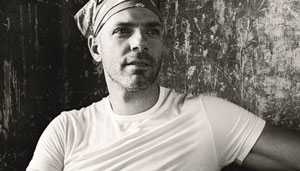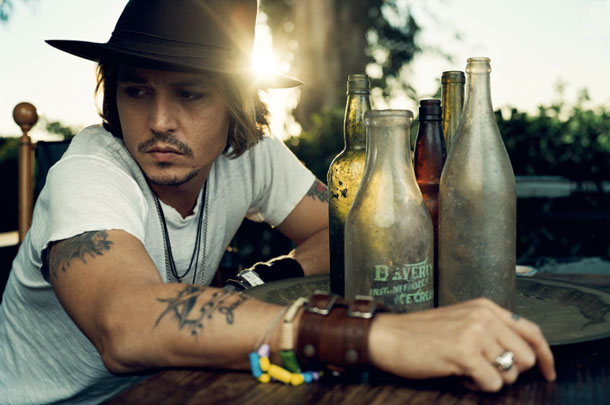Talk about the arrogance of power — or of a genius? You may know Vogue and Vanity Fair fashion photographer Norman Jean Roy (click his name for the most minimalist website you’ve ever seen!). Well lensman Roy, whose also socially conscious work is highly engaging, is none too happy about technology’s influence and effects on fashion photography. He told The Cut that “with the advent of digital photography, the dictatorship aspect of photography became democratized and over time became a group effort, which I think is bullshit.”

Because?
Because, in fashion, “as a photographer it’s your responsibility to fulfill the needs of your client. You don’t want to be a dick about it; there are plenty of people who do that, which, I think, is equally bullshit.”
Hear, hear.
To avoid the photography-only democracy, Jean Roy says he always shoots on film, believing that the medium keeps a photographer focused and in the moment.
According to Jean Roy, the final shots are just better on film — imperfect in a way that gives it life without the help of digital retouching.
Jean Roy has clearly something to say, especially about shooting film:
When you shoot film, you don’t have the luxury of seeing every single image coming out. And because of that, you stay very focused. Everything (becomes) hyperreal, so when you get it, you get it another time, and another time after that just to make sure you got it. As a result, you have a much better version of, I think, the moment. That’s much more real, honest, and broken, too.
Broken?
Part of a perfect image is that it is imperfect. With digital photography, it’s very easy to perfect the image. You kill the image when you perfect it. You basically suck the life out of it. An image, to me, lives when you can look at it and it’s just slightly off. Like, when you put a primary red and primary green together, you have that vibrancy between the two. A great photograph, not a great picture, needs to have that vibration. It would be very easy to take any one of my photographs and I can tell you where I could have fixed this and fixed that.
There are many fashion photographers working today who perfect their subjects to an inhuman degree.
Oh, yeah. Any photographer can do that. And the ones that do that are the ones who destroy their image. There are lots of fashion photographers who destroy their image. Again, I’m not dissing it; to me, that is what I think is fundamentally wrong with fashion photography. It really is directly because of digital capture.
So you never shoot digital?
If and when I have to shoot digitally, I always shoot to card and never show anyone. I usually give myself a day or two before I look at the session. It’s the same thing you would do with film, you shoot your film, it goes to the lab the next morning and you get it back that afternoon. That space in time between [taking the photograph] and looking at it after is a really important thing. It’s kind of like counting to ten when someone makes you really mad. If I said something awful to you and you just counted to ten, your reaction would be different than just (snaps fingers.) We’re in such a hurry to make sure we “got it” that in the process I genuinely think the results today are infinitely inferior than where they were ten years ago.
Read the whole interview at The Cut, very interesting read indeed. He also touches on the psychology of photography and more. And enjoy the slideshow¨
(BTW, if you’re into more social and political aspects of photography, get your hands on our The Politics of Photography.)



